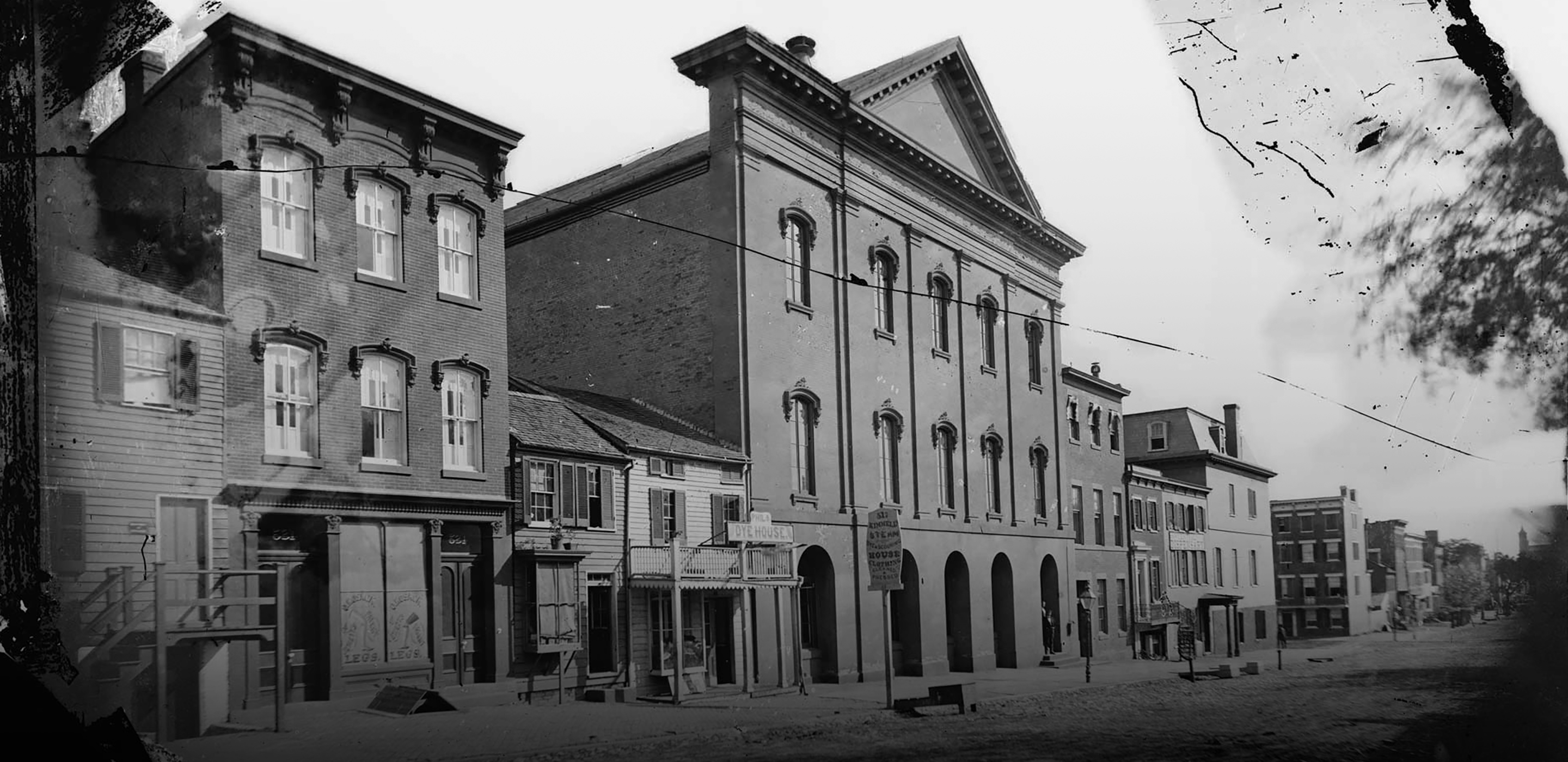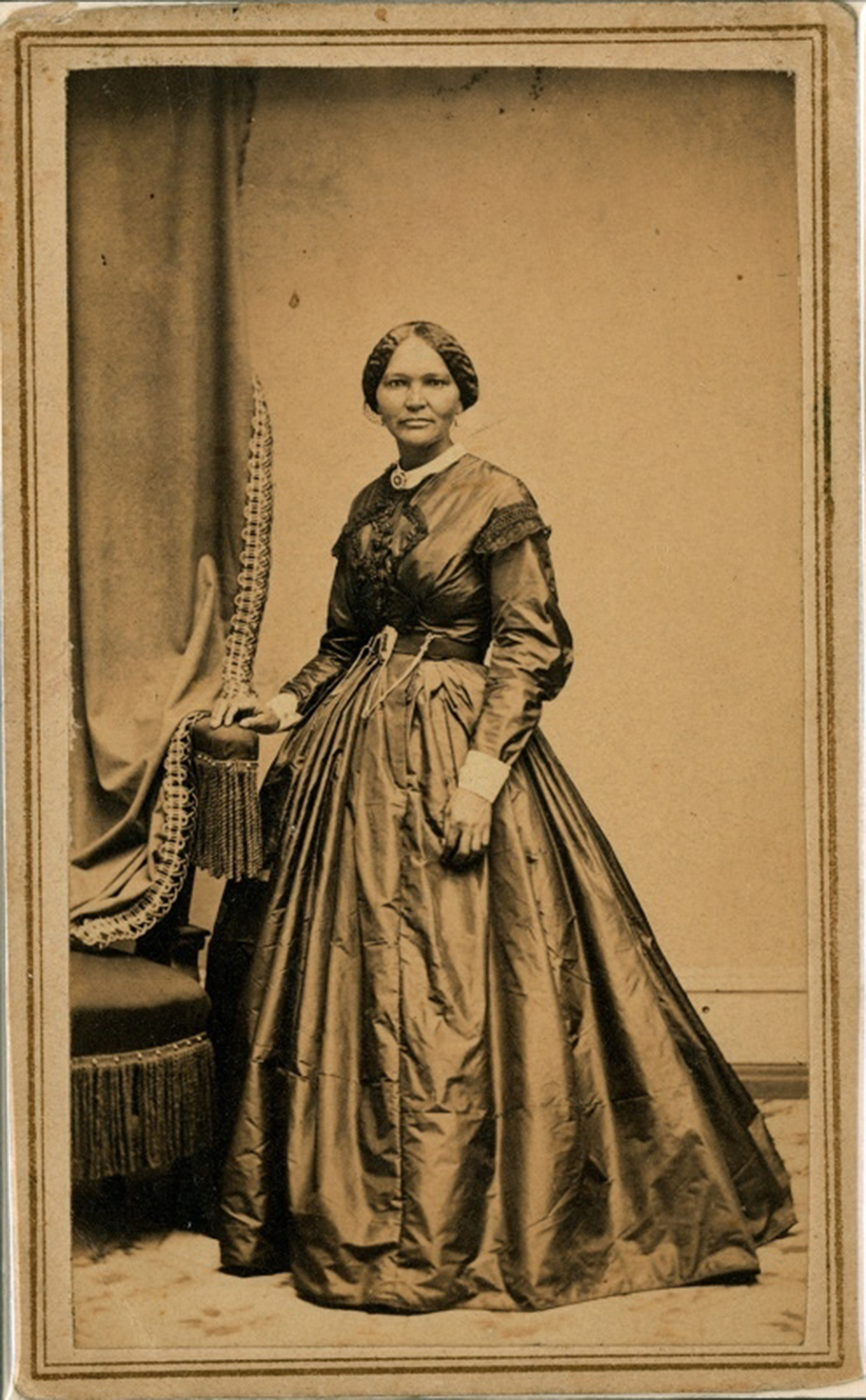
Interview with Historian Kate Masur about the book They Knew Lincoln
Editor’s Note: They Knew Lincoln by John E. Washington recounts the relationship between Lincoln and Washington’s African-American community. Kate Masur, a professor of history at Northwestern University, facilitated the reissue of the book for the first time since the original run in 1942. This edition includes a new introduction by Masur on John E. Washington and the Washington, D.C., he knew.
Masur will discuss They Knew Lincoln with journalist and The Race Card Project founder Michele Norris at Ford’s Theatre on April 16, 2018. Here she offers a preview.
Aislinn Rubinic & David McKenzie: How did you first encounter They Knew Lincoln?

Kate Masur: I first encountered They Knew Lincoln when I was doing research for my dissertation. I was writing about Washington, D.C., during the Civil War and Reconstruction, and the book appeared on my radar, probably because it was cited by someone else. Fortunately, the University of Michigan library had a copy. I read John E. Washington’s reminiscences and his profiles of African Americans who had known the Lincolns, and I immediately wanted to know more about the people featured in the book, the author, and how the book had come to exist.
AR & DM: What made you want to see it reissued?

KM: There are many reasons I wanted to see the book reissued, but one of the foremost is that for all the interest in Lincoln’s relationship to questions of race and slavery, there are actually very few books on the topic. I went to the bookstore at the Abraham Lincoln Museum and Library in Springfield, Illinois, for example, and noticed that such books were scarce. Knowing how popular They Knew Lincoln was at the time it was published—and how widely reviewed it was—I felt annoyed that it was out of print and largely unavailable. The more I learned about how Washington came to write the book, the obstacles he overcame, and the book’s original reception, the more I felt determined to try to get it back into print.
AR & DM: How did this fit into the world of Civil War and Lincoln scholarship then? How did Washington’s compilation of these voices change historical perspectives on Lincoln and his world?
KM: When Washington was writing, most Lincoln scholars and fans were not particularly interested in Lincoln’s relationship with African Americans. Some thought slavery and emancipation were relatively insignificant in Lincoln’s career. Others imagined Lincoln as the “Great Emancipator” while ignoring African Americans’ role in securing their own freedom and the abolition of slavery itself.
At the same time, African Americans had engaged in a longstanding debate about Lincoln and his legacies. In an 1876 speech at the unveiling of the Emancipation monument in Washington, D.C., for example, Frederick Douglass had said African Americans were “at best” Lincoln’s “step-children” but that Lincoln had been the right man for the job during the Civil War. Decades later, in the pages of the Crisis magazine, W. E. B. Du Bois emphasized that Lincoln was a flawed hero, writing, “At the crisis he was big enough to be inconsistent—cruel, merciful; peace-loving, a fighter; despising Negroes and letting them fight and vote; protecting slavery and freeing slaves. He was a man—a big, inconsistent, brave man.”
John E. Washington admired Lincoln in a more unvarnished way than either Douglass or Du Bois, but his main concern was also somewhat different. He approached his subject as a social historian; that is, he wanted to reconstruct the lives and impact of individual people who to that point were largely unknown or had been forgotten. His book made the case that their lives mattered and were worth remembering.

AR & DM: Tell us more about John Washington, the community in which he belonged, and his motivations in writing the book.
KM: Washington grew up, in part, in a boarding house around the corner from Ford’s Theatre. His grandmother, who raised him, managed the boarding house and often had company over in the basement. Many of his grandmother’s friends had lived through slavery and the upheavals of the Civil War. Some had migrated into the capital during the war, and many had—in one way or another—encountered the Lincolns. Washington admired his grandmother’s friends and valued the wisdom they had accrued and the dramatic experiences they often recounted. His book was in many ways a tribute to that generation. His own life was very different from theirs, in ways you can discover if you read the introduction to the new edition!
AR & DM: What was the most surprising thing you learned from the book itself? From your research on the book? What’s your favorite story?
KM: One of my favorite things about the book is how it describes the lives of African-American government employees in the Civil War era. Washington makes clear that although working for the government itself—or as a domestic employee of a prominent politician—could bring prestige and a somewhat stable salary, it was also extremely difficult. The government workers in They Knew Lincoln put in very long days and the pay was not great. Yet many were prominent members of their own community and involved in organizations that sought to strengthen and uplift that community.
As for a story from my own research: When I began researching Washington and his motivations for writing the book, I knew only a minimal amount about the 1935 controversy over whether Elizabeth Keckly, the dressmaker and confidante of Mary Lincoln, had actually existed and whether she had written the 1868 memoir, Behind the Scenes. When I really delved into that episode—including the white man who incited it, David Rankin Barbee, and the white woman journalist who inflamed it, Bess Furman—I was fascinated and somewhat horrified by what I discovered.

AR & DM: How does Ford’s Theatre fit into the story?
KM: Ford’s Theatre plays an especially prominent role early in the book. The theatre was an important landmark in Washington’s childhood. Washington lived near it, and many of his grandmother’s friends believed it to be haunted. They told stories of hearing strange sounds and seeing lights flickering in the old theatre, which at that time was closed down. As a child, these stories terrified him. They also made Lincoln and John Wilkes Booth prominent figures in his imagination.

AR & DM: How can this book speak to today’s readers?
KM: I think the book can help today’s readers imagine Abraham Lincoln as John E. Washington and the people in his book did—as a real person who lived as most people do, surrounded by friends and acquaintances and interested in making sense of the world around him.
I also hope the book will encourage readers to consider how we envision the American past. Washington wanted to convey that African American history is integral to the story of American history writ large. I think his book demonstrates that, and I think it’s a theme that remains relevant in the present, as we continue to debate, for example, the meaning of the Civil War, the relevance of Confederate monuments, and the question of who our national heroes and heroines ought to be.

